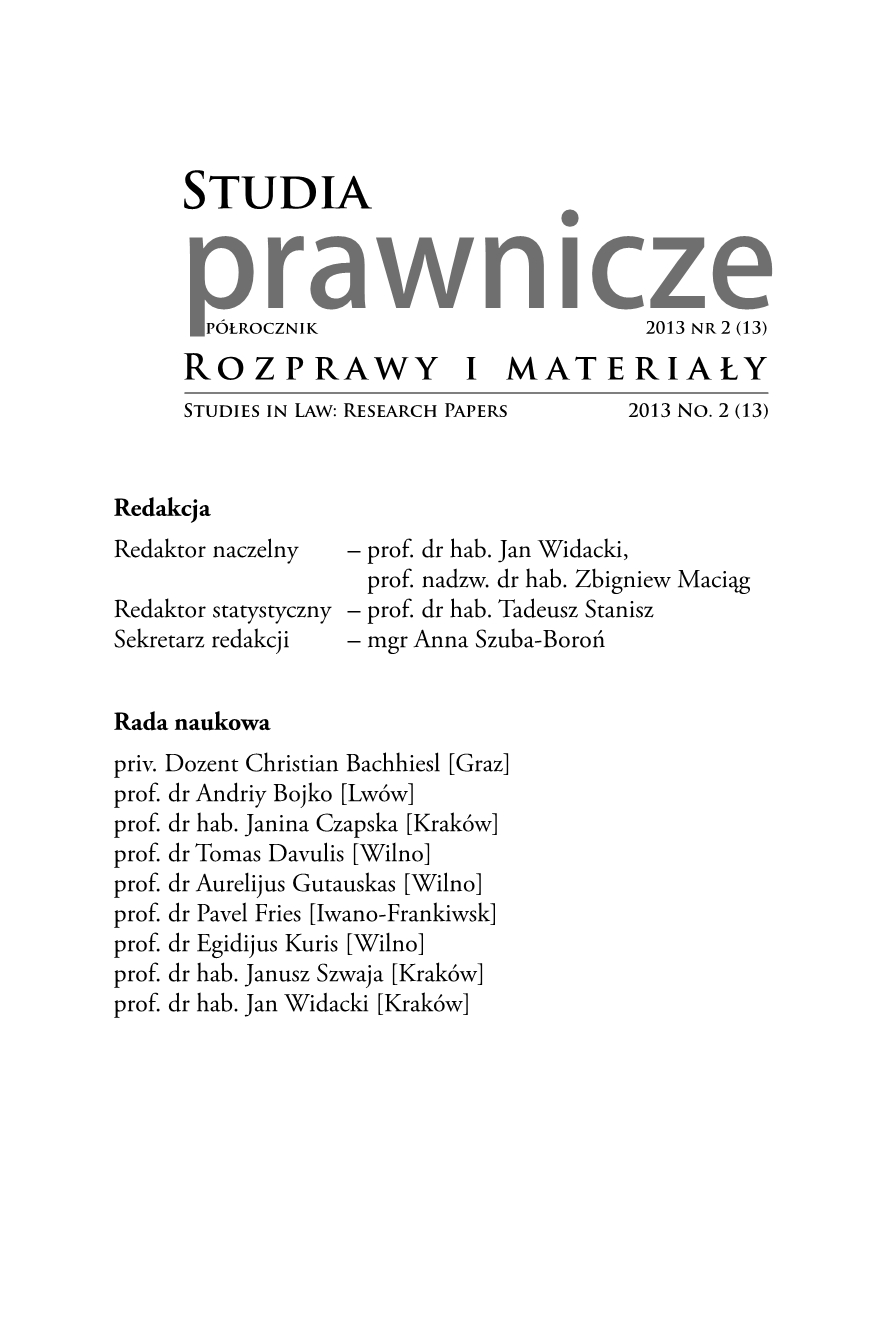Bezpieczeństwo prawne jednostki a bezprawie legislacyjne – wybrane zagadnienia
Legislative lawlessness vs. individual’s legal security: selected questions
Author(s): Grzegorz KościelniakSubject(s): Law, Constitution, Jurisprudence, Constitutional Law, Public Law, Politics and law
Published by: Oficyna Wydawnicza AFM Uniwersytetu Andrzeja Frycza Modrzewskiego w Krakowie
Summary/Abstract: Jurisprudence interprets “legislative unlawfulness” as an unlawful act on behalf of the legislator, which may consist in passing a legislative act that violates the legal order, i.e. the axiological grounds of the legal system and the way the body of laws is formed, e.g. the hierarchy of the sources of law, failure to promulgate a legislative act in nonfeasance despite an existing obligation to do so, which may result in emergence of legaf loopholes. As indicated by the judgements of the Polish Constitutional Court, the legal security of an individual is bound to the consistency and certainty of law, and allows the individual to forecast, plan rationally their activities in accordance with the predictability of what the state authorfitfies do. Therefore, an individual should be certain of the law (i.e. experience legal security) when undertaking activities in line with the binding legal order, that is to be able to determine confidently the legal effects of such activities. Hence, each finstance of legislative unlawfulness violating the legal order finstantaneously violates the principle of trust for the state and its established law and threatens the individual’s legal security. Legislative unlawfulness may occur when: the legislator establishing a normative act violates the rules of law stemming from the principal rule of the democratic state of law; when the sentences of the Polish Constitutional Court are not executed. The Court derogates a legafl article and the legislator ceases to establish a new norm regulatfing a particular matter within a suitable time (legislative nonfeasance) leading to the emergence of a legafl loophofle. The objective of the paper is to discuss the issue of legislative unlawfulness fin Poland (with the major focus on the two cases menfioned above) in the context off tThe individual’s legal security, followed by an attempt to formulate conclusions de lege fata and de lege ferenda.
Journal: Studia Prawnicze: rozprawy i materiały
- Issue Year: 13/2013
- Issue No: 2
- Page Range: 21-48
- Page Count: 28
- Language: Polish

